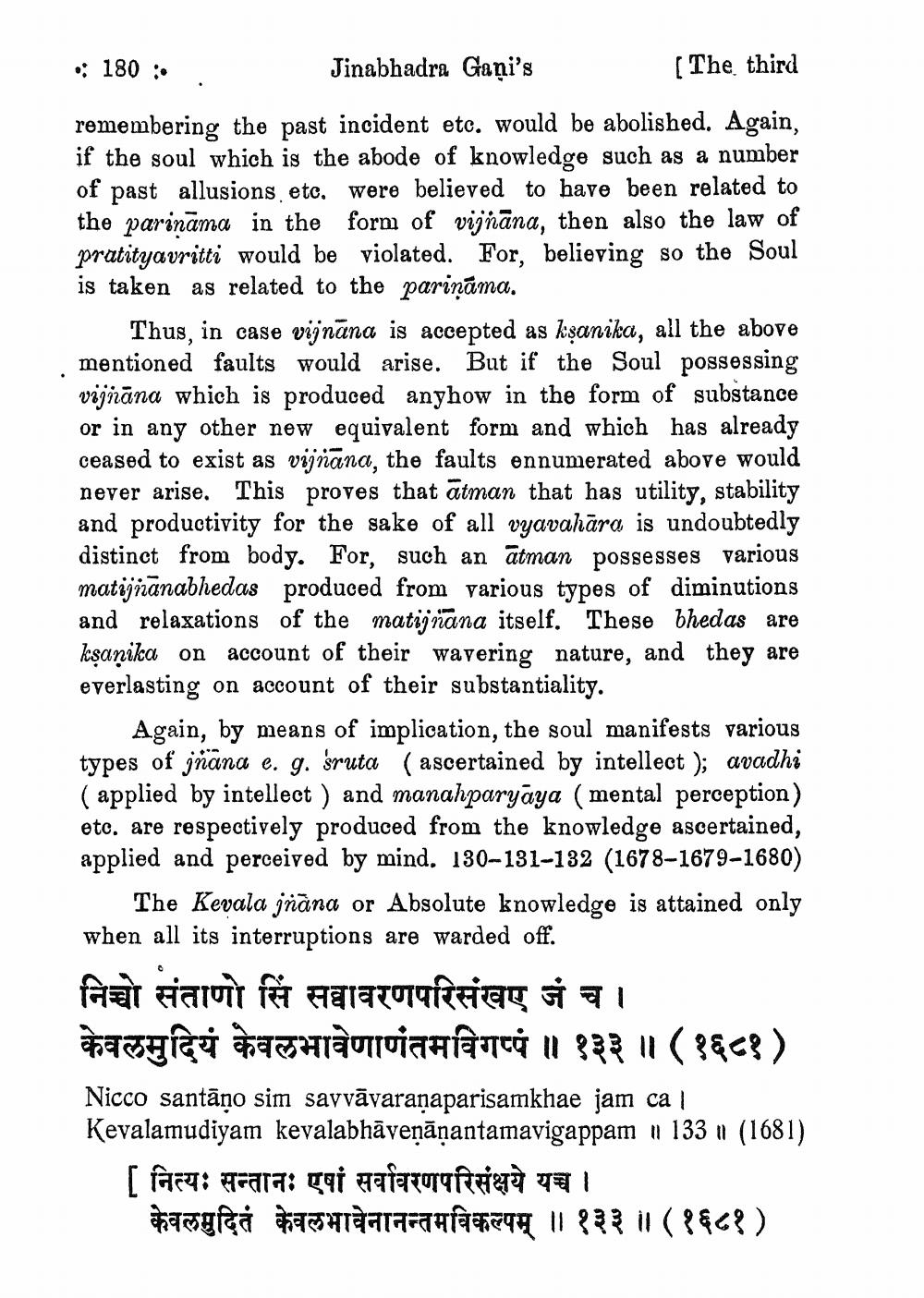________________
: 180 :
Jinabhadra Gani's
[The third
remembering the past incident etc. would be abolished. Again, if the soul which is the abode of knowledge such as a number of past allusions, etc. were believed to have been related to the parināma in the form of vijñāna, then also the law of pratityavritti would be violated. For, believing so the Soul is taken as related to the pariņāma.
Thus, in case vijnana is accepted as kşanika, all the above mentioned faults would arise. But if the Soul possessing vijnana which is produced anyhow in the form of substance or in any other new equivalent form and which has already ceased to exist as vijñāna, the faults ennumerated above would never arise. This proves that atman that has utility, stability and productivity for the sake of all vyavahāra is undoubtedly distinct from body. For, such an ātman possesses various matijñānabhedas produced from various types of diminutions and relaxations of the matijnana itself. These bhedas are kșanika on account of their wavering nature, and they are everlasting on account of their substantiality.
Again, by means of implication, the soul manifests various types of jñana e. g. sruta (ascertained by intellect ); avadhi ( applied by intellect ) and manahparyaya (mental perception) etc. are respectively produced from the knowledge ascertained, applied and perceived by mind. 130-131-132 (1678–1679-1680)
The Kevala jñāna or Absolute knowledge is attained only when all its interruptions are warded off. निच्चो संताणो सिं सवावरणपरिसंखए जं च । magici hauan@tei II 8381 (8808) Nicco santāņo sim savvāvaraṇaparisamkhae jam ca i Kevalamudiyam kevalabhāveņāṇantamavigappam i 133 11 (1681) [नित्यः सन्तानः एषां सर्वावरणपरिसंक्षये यच्च ।
केवलमुदितं केवलभावेनानन्तमविकल्पम् ।। १३३ ।। (१६८१)




